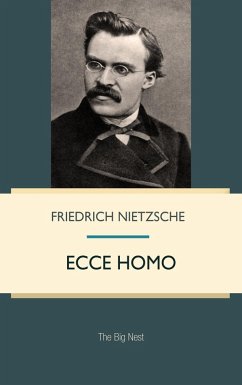Ecce Homo is the last prose work that Nietzsche wrote. It is true that the pamphlet Nietzsche contra Wagner was prepared a month later than the Autobiography; but we cannot consider this pamphlet as anything more than a compilation, seeing that it consists entirely of aphorisms drawn from such previous works as Joyful Wisdom, Beyond Good and Evil, The Genealogy of Morals, etc. Coming at the end of a year in which he had produced the Case of Wagner, The Twilight of the Idols, and The Antichrist, Ecce Homo is not only a coping-stone worthy of the wonderful creations of that year, but also a fitting conclusion to his whole life, in the form of a grand summing up of his character as a man, his purpose as a reformer, and his achievement as a thinker.
Dieser Download kann aus rechtlichen Gründen nur mit Rechnungsadresse in A, B, BG, CY, CZ, D, DK, EW, E, FIN, F, GR, HR, H, IRL, I, LT, L, LR, M, NL, PL, P, R, S, SLO, SK ausgeliefert werden.


